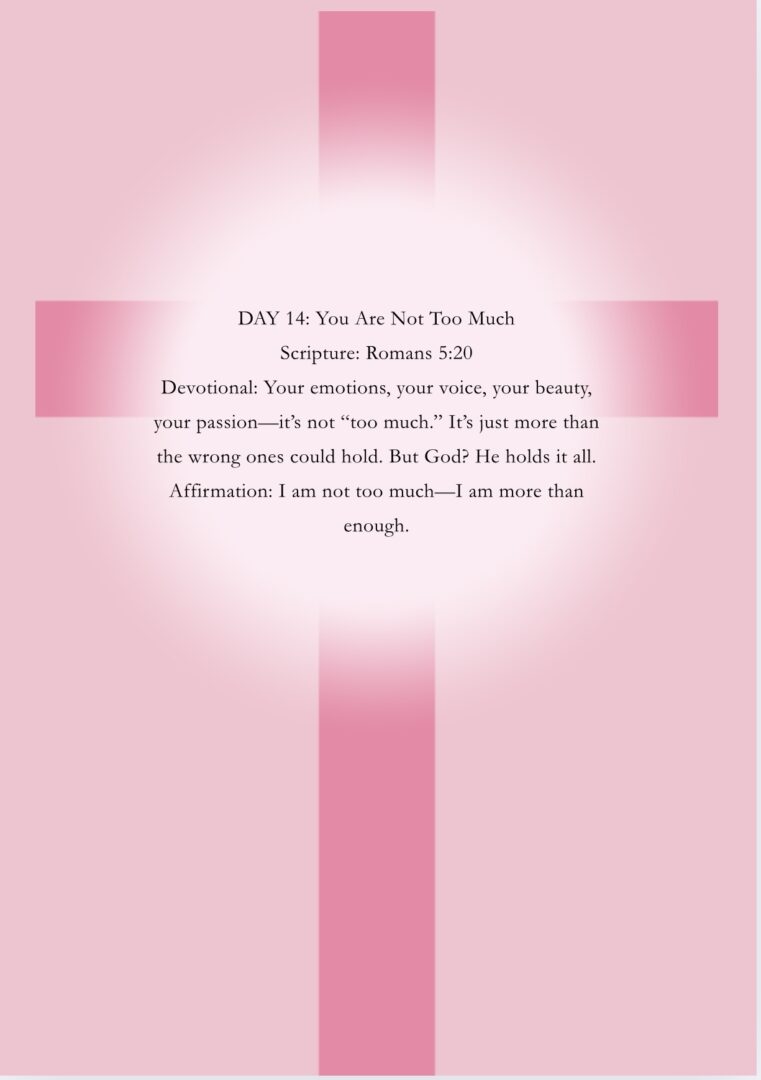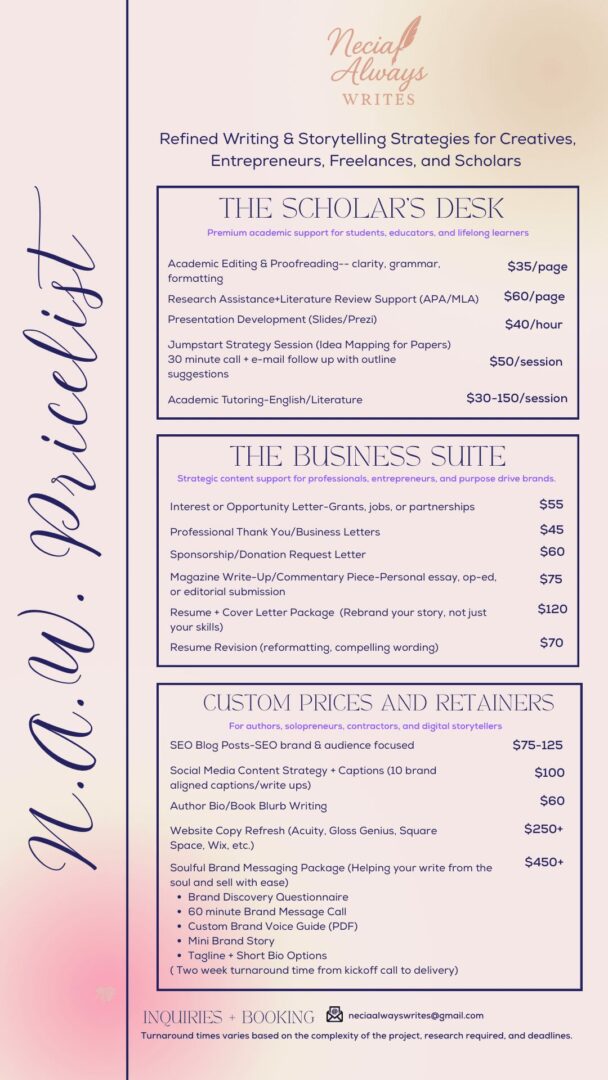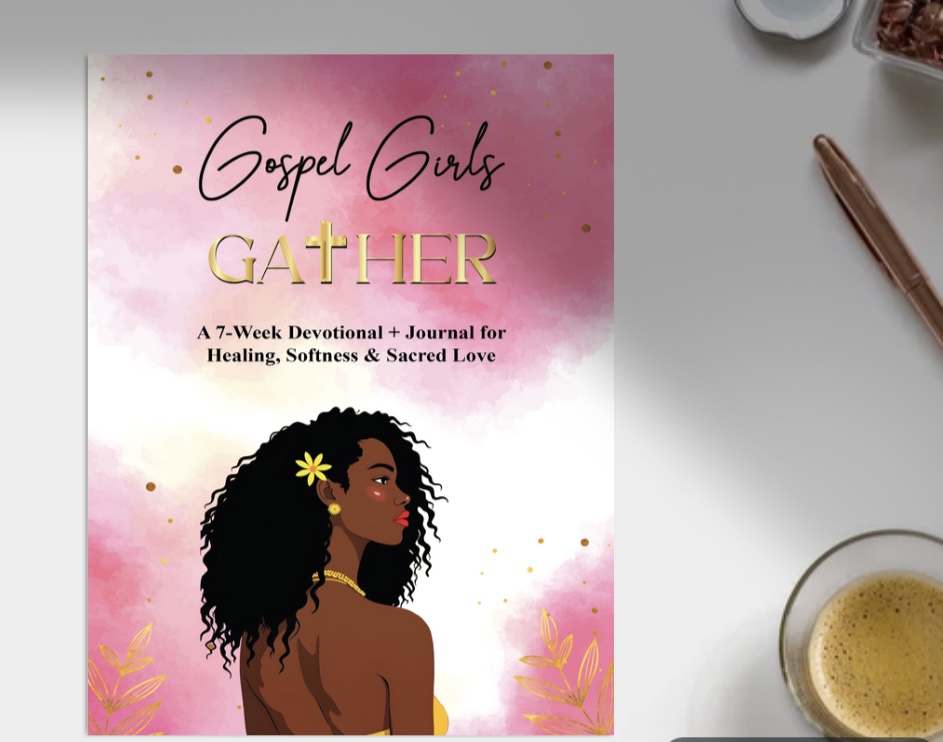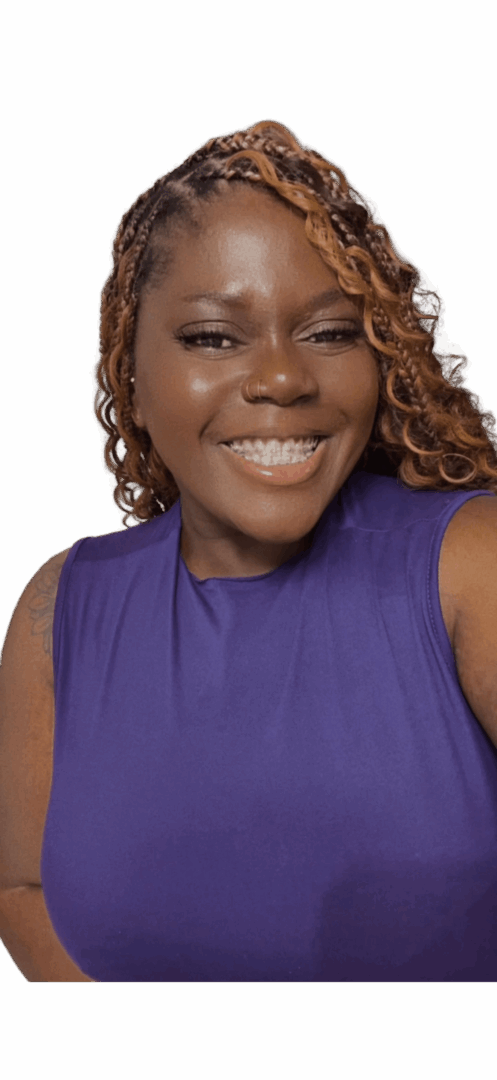We’re looking forward to introducing you to Donecia Wilson . Check out our conversation below.
Good morning Donecia, it’s such a great way to kick off the day – I think our readers will love hearing your stories, experiences and about how you think about life and work. Let’s jump right in? Are you walking a path—or wandering?
I would consider myself an intentional wanderer. I do not mind branching out or going against the norm. I find joy in random experiences and feel they provide insight that provides us with a deeper perspective of ourselves.
Can you briefly introduce yourself and share what makes you or your brand unique?
I’m Donecia, the creator of Necia Always Writes and Lover Girls Gospel. I’m a writer, educator, and storyteller who turns words into safe spaces for healing, creativity, and connection. Right now, I’m working on a children’s book, my seven week devotional Gospel Girls Gather, and a new blog site, each project reflect my heart for faith and legacy. My work is all about blending truth, love, and storytelling to remind people that their voices matter.
Okay, so here’s a deep one: What part of you has served its purpose and must now be released?
The part of me that has served its purpose and must now be released is the version of myself that played small to make others comfortable. Carrying doubt and second-guessing once felt like protection, but I’ve learned those habits only limited my growth. That season gave me resilience and clarity, but it no longer aligns with the woman I am becoming. I’m releasing it so I can step forward with confidence, purpose, and freedom.
When did you stop hiding your pain and start using it as power?
I stopped hiding my pain and started using it as power when I realized that silence was costing me more than honesty ever could. For a long time, I thought covering my scars made me stronger, but it only made me feel invisible. The turning point came when I began writing openly about my experiences and saw how my vulnerability gave others permission to face their own truths. That was when I understood that pain, when transformed, isn’t just something to survive — it’s a tool to inspire, connect, and create lasting impact.
Alright, so if you are open to it, let’s explore some philosophical questions that touch on your values and worldview. What important truth do very few people agree with you on?
The truth I hold that very few people agree with is that pain and beauty are not opposites, they’re partners. We’re taught to run from pain and only chase the pretty parts of life, but I’ve learned that the most authentic beauty is born right in the middle of struggle. My hardest seasons gave me the kind of glow no filter can create. People don’t like hearing that pain is necessary, but I believe it’s the soil where our purpose actually takes root.
Okay, so before we go, let’s tackle one more area. What is the story you hope people tell about you when you’re gone?
I hope the story people tell about me when I’m gone is that I showed up fully, with courage, creativity, and love, and that I used my gifts to lift others, speak truth, and leave the world a little brighter than I found it. I want to be remembered as someone who honored her journey, embraced her vulnerability, and inspired others to do the same. More than accolades or achievements, I hope they remember the impact I had on hearts, the safe spaces I created, and the legacy of faith, resilience, and joy I carried with me.
Contact Info:




so if you or someone you know deserves recognition please let us know here.




